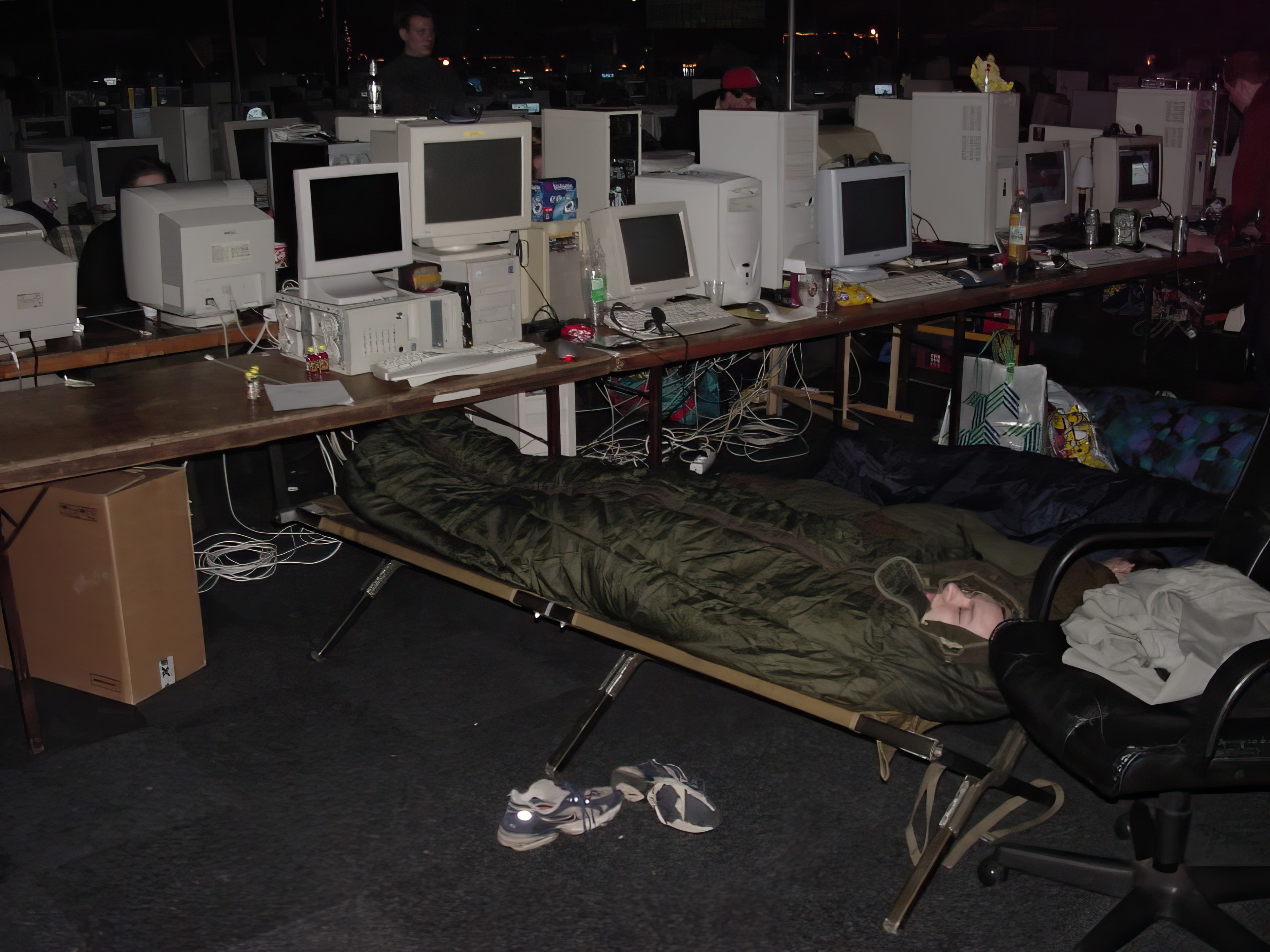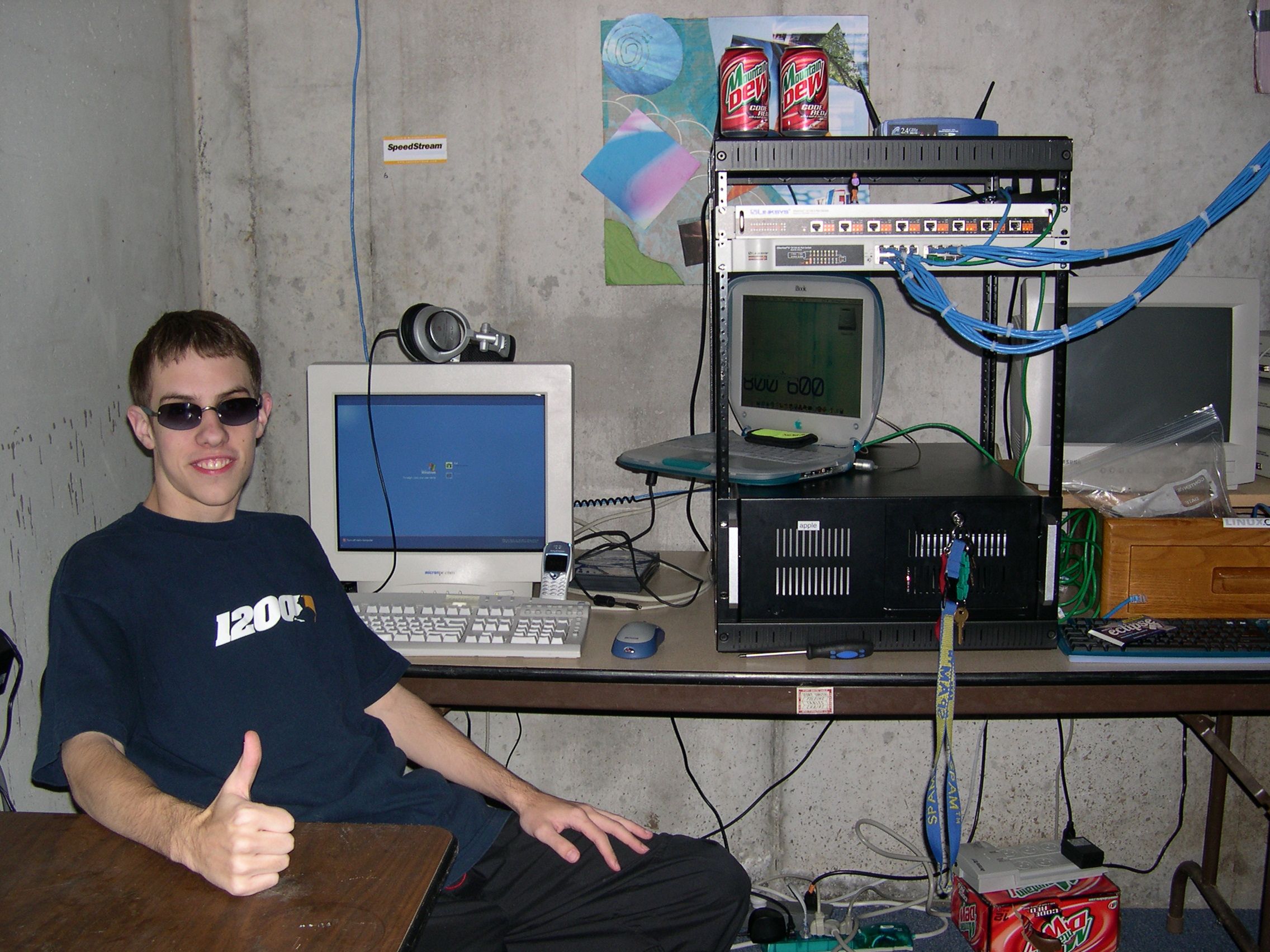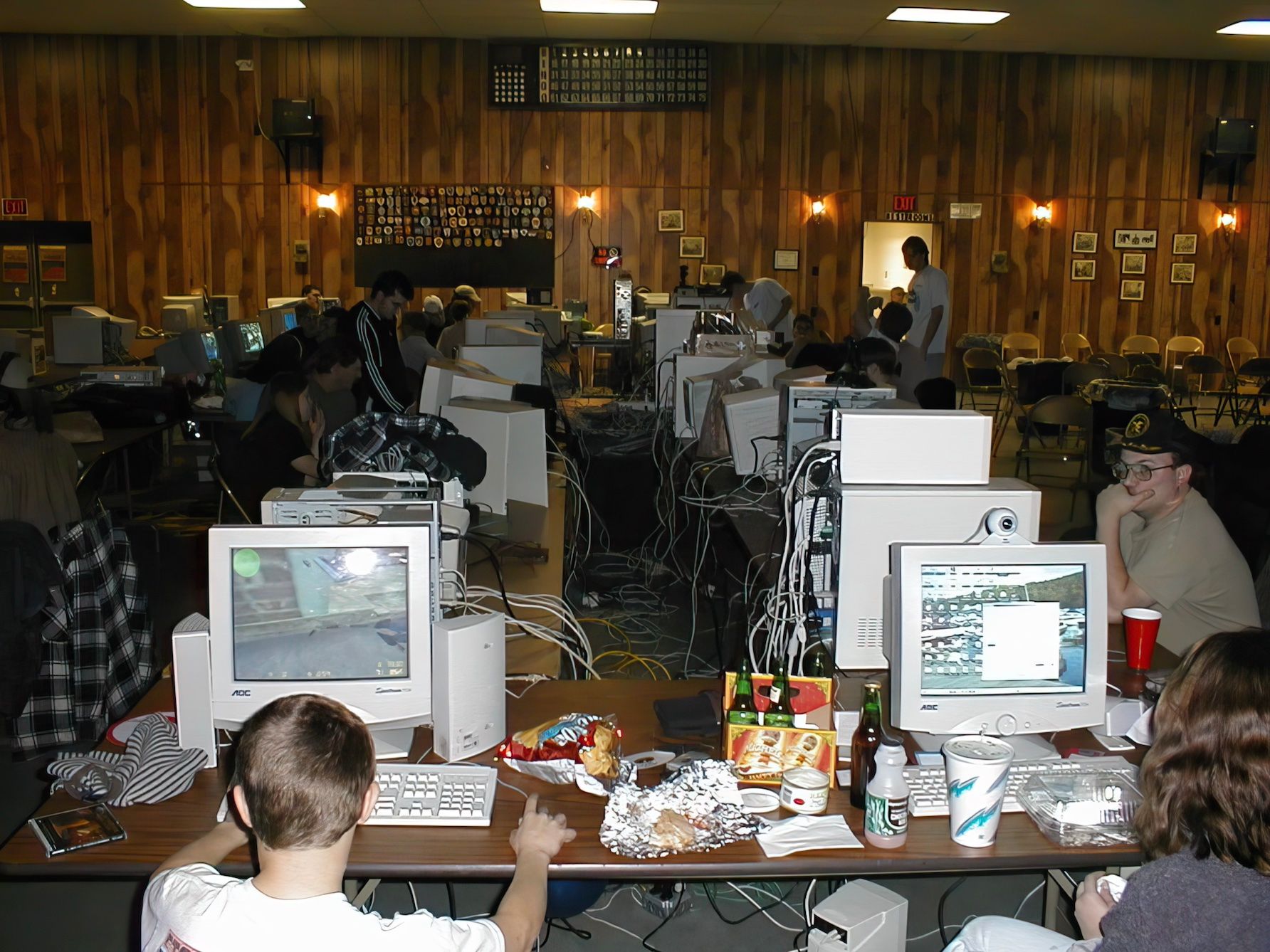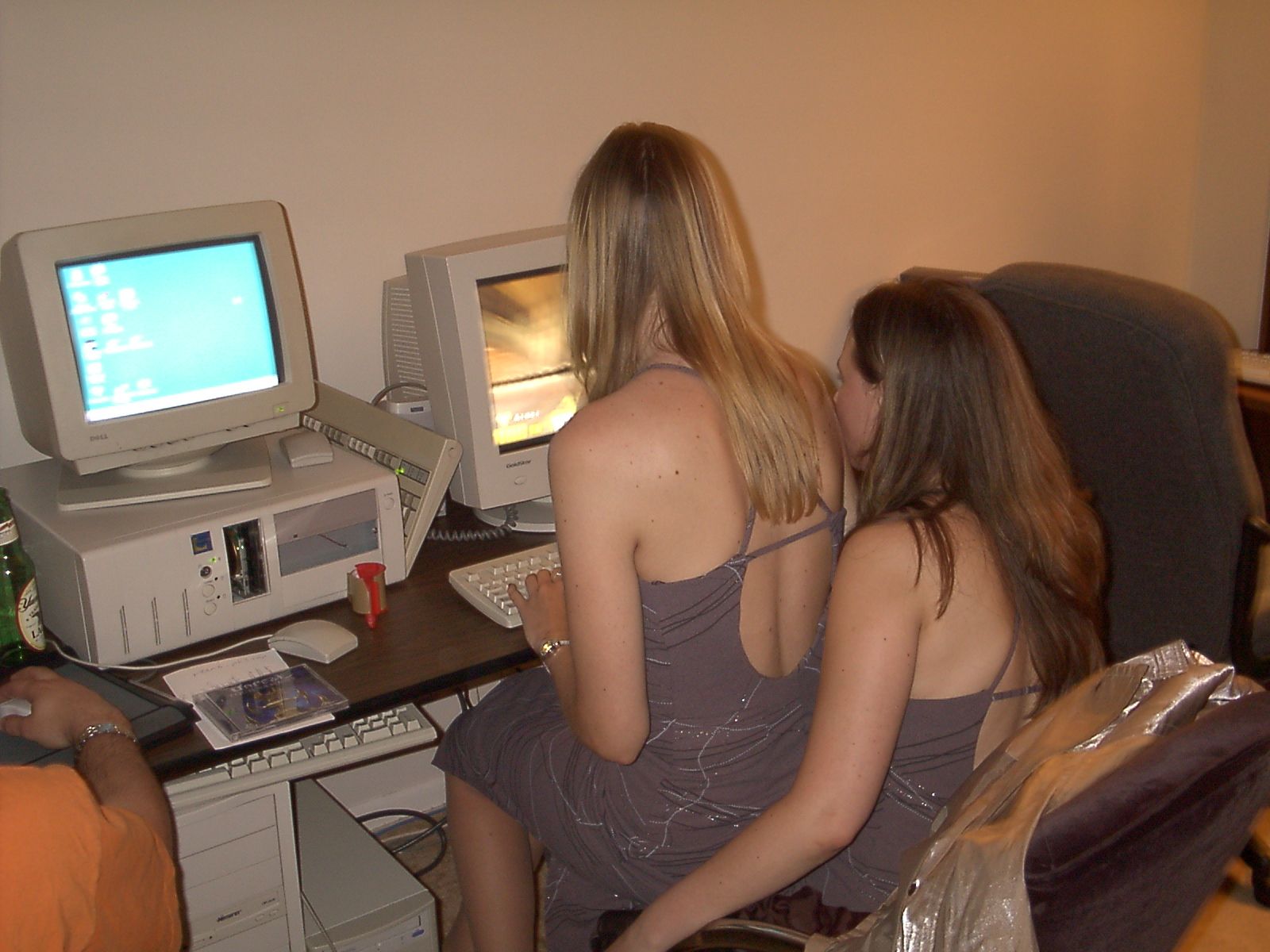An Internet the Size of a Room: Berlin Review
In today's media landscape, a book review is often a slap on the back. A handshake among colleagues that says, “well done.” But we have never been afraid to offer critique when critique is due. In our print section Berlin Reviews, we've always tried to take the propositions of a book seriously and push them to their extremes.

What if you and your friends had your own little internet, the size of a room? No outside influence, no outside information, no viral trends, no content-suggesting algorithms; just the machines and the people within the physical space. What would you do on your little internet?
For anyone under 25, we are talking about LAN parties. LAN stands for Local Area Network (it’s an acronym like NASA, not an initialism like CPU), and around Y2k, plus or minus five years in either direction, gamers would lug their computers to a mutually agreed upon location—a friend’s basement, a warehouse, an apartment, a hotel conference hall—wire the computers together (because wireless internet either literally didn’t exist or was incredibly unreliable and slow at the time), then play video games together on these separate machines.

In the new book LAN Party, writer and designer merritt k offers a loving snapshot of this scene, compiled and chronicled by a squad of guest contributors, ranging from legendary game designer Josh Sawyer talking about losing a Quake match against John Romero, to designer Robert Yang’s homoerotic Counter Strike sessions.
For the right type of person, the book evokes feelings of looking at digital photos taken on a Razr in the mid-2000s. Stringy cascades of ethernet, IEC, USB, VGA cables spill out from machines, tamed by their owners just long enough to get in some matches. Books of this format, nostalgic photo collections of subcultures past, are often superficial compilations intended as aesthetic references, with a touch of scholarly writing for flavor. They often end up installed on the countertops of creative agency lobbies, scanned in and scattered across moodboards. The framing by merritt k and the other contributors, however, makes the book compelling and alarming enough to reconsider the era when our evolving relationship with technology was more of a two-way street.
merritt k correctly notes that what killed LAN parties as a DIY option was that communications infrastructure improved, the average computer got simpler to use, games became a larger business, and ultimately, control went from the players to the publishers.
“Even games that have offline components often do not have any kind of peer-to- peer or private server functionality, meaning that it is impossible for a group to play them together in a LAN environment.”

Hardly an isolated event, those LAN-party-killing changes are just expressions of broader anti-trust-flouting corporate consolidation, and the infiltration of corporate control into every available mechanism for expressing ourselves and communicating with others. Even non-gaming devices have their owners grappling with the freedom to shape the technology in their lives. As devices become more internally complex and difficult to repair, the power to fix or otherwise modify them is increasingly being concentrated in the hands of a few large corporations, leaving consumers at their mercy. The “right to repair”—a movement that advocates for consumers to have the legal right to repair and modify their own electronic devices and equipment without interference from manufacturers—has been a battleground in the US for years. Victories to this end were made in 2021 and 2022 but stalled out in local implementation (having been made toothless in NY before it came into effect). It’s just one example of how corporate interests are undermining the ability of communities to shape the technology that by now has permeated every social interaction.

Given the brief moment in time when they were a viable social event, LAN parties—and to a lesser but still considerable extent, local multiplayer games—were like a desert bloom after a once-in-a-hundred-years rain. LAN parties flourished despite the technical hurdles, of which there were many: several contributors to LAN Party go into detail about the arduous task of maintaining their ad-hoc internal network. They were, by today’s standards, so inefficient that it’s almost blasphemy.
And yet: no targeted ads, no pre-rolls. No monthly subscription, no paid DLC. Looking back at these photos yields a glimpse at a utopian vision of what the internet could have been, a space where nothing you did in that room would be tracked and saved, ingested, distilled, diluted, and sold back to you. At present, companies are “sunsetting” older games with still active and sprawling communities and entire systems like Google Stadia can just be switched off, remotely, forever. The only thing worse than ownership is rental, and today, you’re renting everything.

Merritt k’s LAN Party shows (or if you’re a Millennial, reminds) the reader that technology can be optimized for and by the user, on their own terms, and for their own ends. More simply, technology can be wonderfully messy and wonderfully fun. This is such an uncomplicated truth that it can seem innocuous, or even reductive, but when considering most people’s relationship with Big Tech—where an EVP of Product tail wags the dog of 500 million users, where a constant calculus of decisions made by people in rooms you’ll never visit changes the way your technology works just subtly and just constantly enough that you forget it ever looked any other way. The nostalgia contained in every page in this book belies a subversive message: it is not merely possible to make your own internet, it is increasingly the only way to have technology serve you, and not the other way around.
Would it be hard work for you to throw a LAN party in the year 2023? Yes. But some still do it. Is it inconvenient to load your car with monitors and towers and cables, to find a time on everyone’s schedule that works, to drive to a conference hall at a cheap hotel just to play deathmatches IRL with your friends all day and all night? Of course. And when every other aspect of your life is being increasingly optimized by and for others, it is a small revolutionary act to be inconvenient.
LAN Party is published by Thames & Hudson (2024).
Credits
- Text: SAM ROLFES
- : JACOB BAKKILA
Related Content

CAO FEI’s Digital Paradigm Shift

Notes From Underground: Slime Fetish

An Analysis of The Backrooms—Also Known as the Internet's Horror Rooms

Media Habitat c. 1975

ARCHITECTURE POST INTERNET: ANDREAS ANGELIDAKIS in Conversation with Carson Chan

Meet SCOTT WATTS: the 21-Year-Old Behind Contemporary-Tech Label gallery909

Look of Genesis: Becoming HOOD BY AIR

CULTIVATED ASPHYXIA: “Exposition N°120 (maybe)” at Balice Hertling